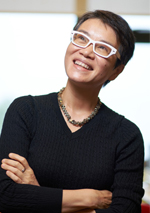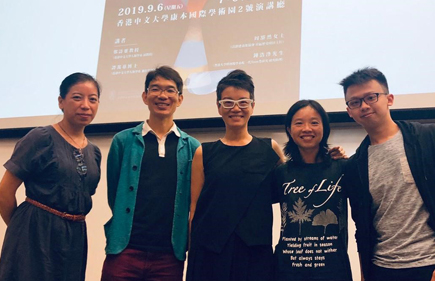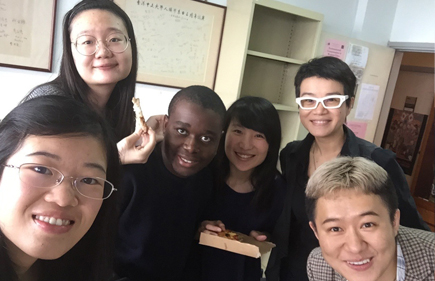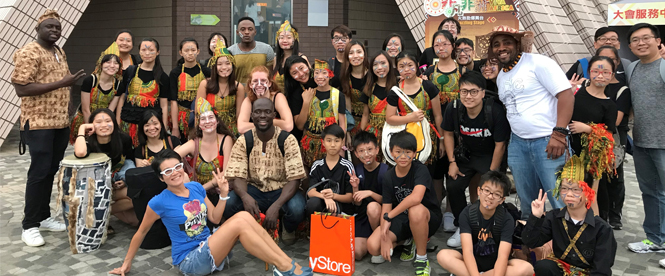|
Sealing Cheng is Associate Professor in the Department of Anthropology, CUHK. She received her DPhil in Anthropology from the University of Oxford and completed a postdoctoral fellowship in Gender, Sexuality, Health, and Human Rights at Columbia University. She was Associate Professor in Women's and Gender Studies at Wellesley College before joining CUHK in 2012. Her research is located at the intersection of gender, sexuality, and mobility. She has conducted research and photovoice project with Korean sex workers in a red-light district, co-founded an Afro-fusion band, Talents Displaced, made up of asylum-seekers, refugees, and ethnic minorities in Hong Kong. Her first book, On the Move for Love: Migrant Entertainers and the U.S. Military in South Korea (University of Pennsylvania Press 2010) received the Distinguished Book Award of the Sexualities Section of the American Sociological Association in 2012.
|
 |
Teaching Philosophy
Three keywords summarize my beliefs about teaching and learning: Passion, Participation, Partnership.
Passion. I seek to cultivate a passion for learning in students. Providing students with the intellectual tools to understand, reflect, and analyze complex issues is essential, but inadequate. It is the deeply felt feeling of excitement for knowledge, the capacity to reflect, and the readiness to act that I hope to inspire in students. By stimulating this affective dimension of learning, my goal is to encourage, challenge, and facilitate students in a possibly life-changing learning experience.

Participation. Anthropology is about understanding the different meanings of being human across time and space. Anthropologists produce knowledge by conducting fieldwork and immersing themselves in the lives of Others. In the process, we learn to grapple with the surprises, uncertainties, and conflicts that arise from differences in beliefs, values, and needs, and we come to be more reflective about who we are, and what we could become in this shared world.

Partnership. My teaching engages students as partners in knowledge producers, with me and with each other. Students are motivated when they acquire skills to critically analyze matters global and local, big and small, public and personal. In all my courses, I use current examples of world affairs or popular culture to draw students into discussion and engagement with the academic literature. This is, however, not just about being 'interesting' to students, but to let them be co-producers of academic knowledge that is alive and relevant to their everyday life. Learning is about collective sharing and building.

I believe General Education is about preparing our students with the expansive intellectual grounding to participate effectively and ethically in this world. We live in an increasingly divided world marked by a range of deepening crises, while simultaneously we congratulate ourselves for new technological advancements or humanitarian projects. What are we supposed to think about these paradoxes, and more importantly, what could we do? Instead of a focus on solving problems, the broad-based inquiry in General Education develops in students an awareness of history and context, a fluency with diverse perspectives, as well as a capacity to consider which problems need solving. As such, General Education provides students with the critical skills to be self-reflective, question assumptions, engage with differences, and envision new possibilities.
One clear objective of CUHK's General Education is the 'well-rounded intellectual development of students' as 'lifelong learners and engaged citizens with a global awareness.' I understand this objective as creating an enabling environment for students to realize that we are all products of history, and yet we have the power to act as ethical beings, and that we are all connected in this shared world.
|


